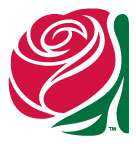For
this Art Gallery blog, we are delving into the realm of needlecraft
with spotlighting Jane Tanner, from New York, and her piece of art
intitled ‘Divisions.’
1. Tell us about yourself as an educator and an artist.
I
have wanted to be a teacher since I was in kindergarten. My fifth grade
math teacher walked on water in my eyes and I wanted to be just like
her. In the late 1970s, math teachers were a dime a dozen. Permanent
substitute positions for three years in middle school mathematics as
well as a year teaching computer science and low-level mathematics at
the high school level gave me teaching experience.
Onondaga
Community College, part of the State University of New York, asked me
to apply for an open position in their Business Administration
Department. I would be teaching data processing. I was hired the same
day I interviewed and thus began a 36-year career teaching computer
information systems and mathematics.
Many people have
influenced me on my needle arts journey. My mother taught me how to knit
when I was five. A college roommate was latch-hooking a rug. A math
teacher was cross-stitching in the faculty dining room during lunch. I
needed to experiment with all of these!
Stamped cross
stitch was my stepping stone into the world of needle arts. When my
family went on summer vacations, I would be able to choose something to
keep me occupied. This is one of the pieces I stitched when I was around
8.
This
was the beginning of my nearly 60-year obsession of creating art using a
needle. For the past 20 plus years, I have belonged to the
Embroiderer's Guild of America (EGA) and the American Needlepoint Guild
(ANG). These two guilds have allowed me to meet like-minded stitchers
as well as experiment with many different types of needle art.
2. How did you decide on this form of art to work with?
My
love of mathematics carries over from my professional life into my
personal life. Counted canvas work such as ‘Divisions’ is full of
geometry including circles, lines, and symmetry.
Twenty
years ago, my world consisted pretty much of counted cross stitch.
Joining the two guilds has opened up a world of different types of
stitching such as blackwork, hardanger, pulled and drawn thread, counted
canvas, beading, the list goes on.
If a project involves using a needle, I am interested!
3. What was your inspiration in picking this project and how did you go about doing it?
‘Divisions’
was offered at the 2017 ANG Seminar; it immediately appealed to me
because of the blues and purples in it. Unfortunately, I wasn't able to
attend the seminar as I was still working at the time. The designer
Debbie Rowley offered this again as an online class this summer and I
jumped at the opportunity to take it.
It is satisfying to watch a blank piece of canvas or other fabric take on a new appearance as the stitching progresses.
4. What is the best piece of advice given you as an artist or that you can give to someone else?
Don't
be afraid of making your project your own. Ted Sorensen said, "You
will never experience personal growth if you fear taking chances."
Normally, I am a rule follower in life and in stitching I try to follow
the instructions I am given. In the past few years, I have relaxed the
need to follow the rules in stitching and have tried experimenting with
changing colors or the actual design. This is encouraging me to design
my own pieces.
5. In your view, what is the value of the creative arts in education?
Having
taught mathematics for 40 years, I was very aware of the relationship
among Science, Technology, Engineering, and Mathematics (STEM).
According to the U.S. Department of Education website, “In an
ever-changing, increasingly complex world, it's more important than ever
that our nation's youth are prepared to bring knowledge and skills to
solve problems, make sense of information, and know how to gather and
evaluate evidence to make decisions." Now our students are encouraged to
think creatively and thus STEAM emerged with the ‘A’ representing the
arts.
In the liberal arts mathematics courses taught at
my college, students are required to submit a project of their choosing
for a major portion of their final grade. The goal of this project is
to incorporate mathematical thinking into a real-world activity.
Projects have included knitting, crocheting, cross stitch, model
building, quilting, to name a few. As a result, students connect
mathematics with something that they are interested in. They may then
dislike mathematics a little less when the realization hits them that
math is everywhere and is not to be feared.
6. Do you have anything else that you would like to share?
One
thing that I have learned is to not be discouraged when a "mistake" has
been made. As long as the mistake has taught you something, it isn't a
mistake but a learning experience. With a project, it is sometimes
necessary to rip out your work so you can get it correct. But sometimes
mistakes may lead to something beautiful or an idea for another project.
Designers have long realized this and, in fact, there is a "mistake
stitch" in knitting and counted canvas needlepoint.
Having
said that, I love mathematics because solutions are either right or
wrong - not exactly creative. But there can be creativity in
mathematics when one examines the elegance in getting to the solution.














